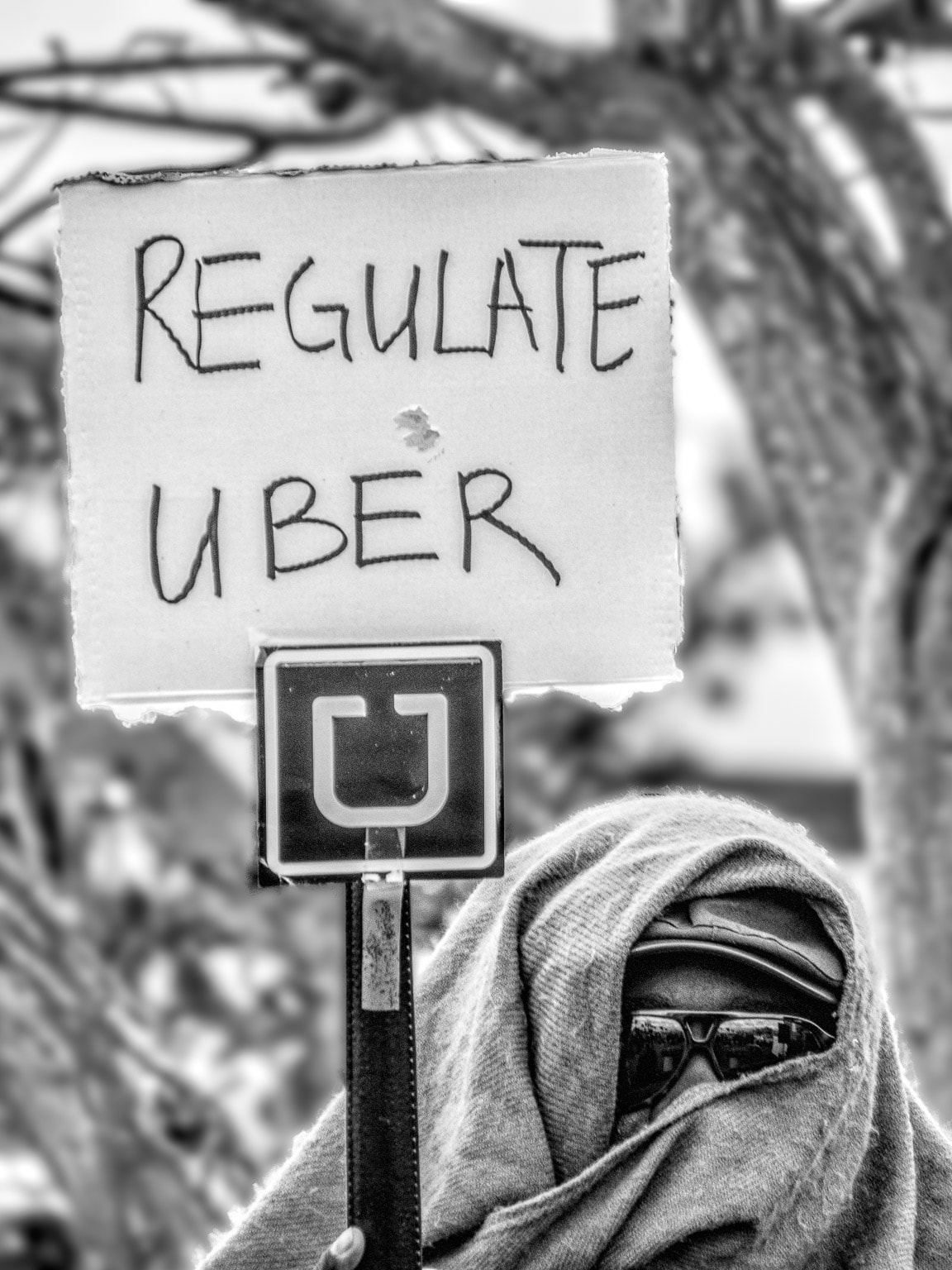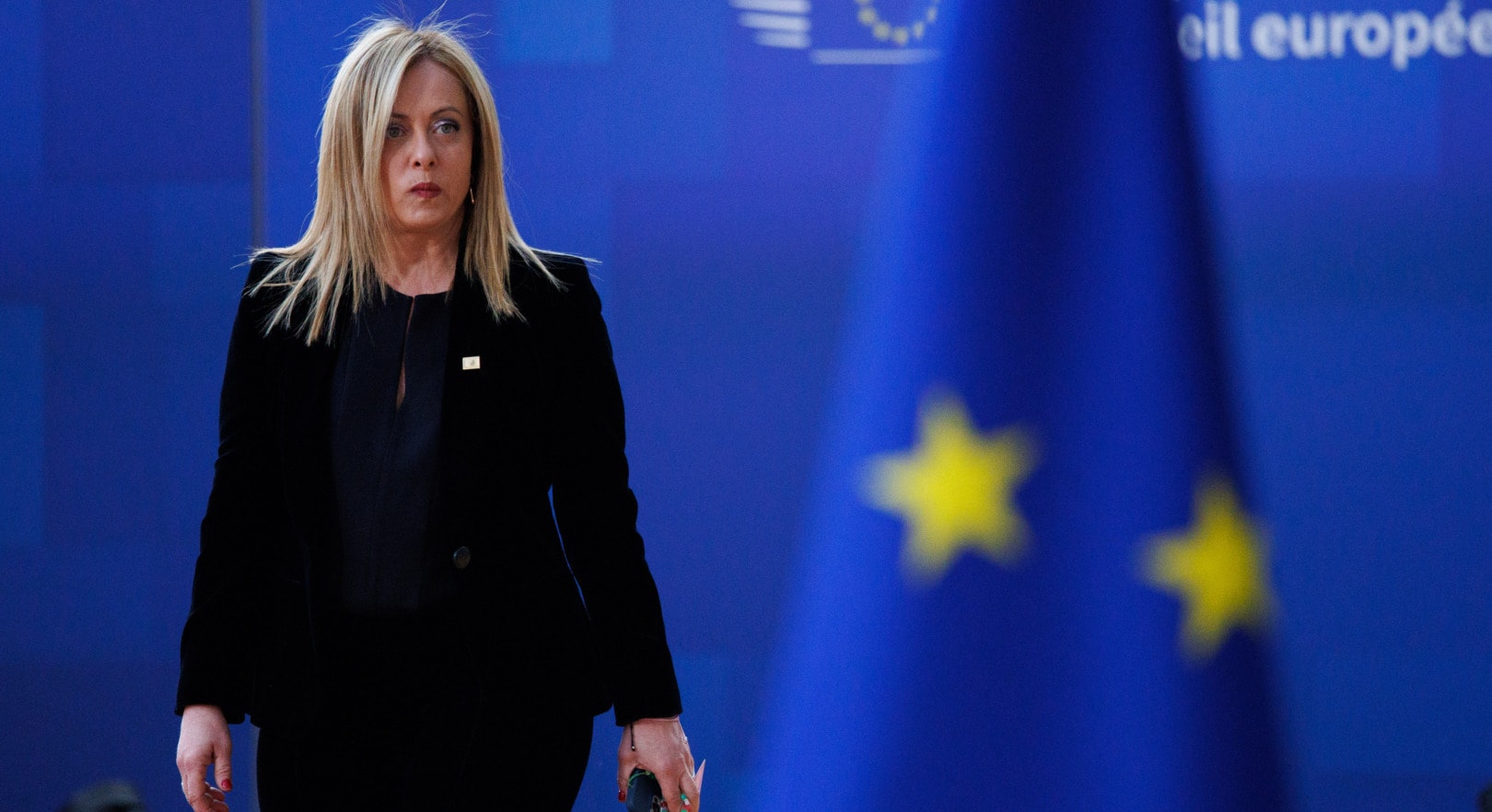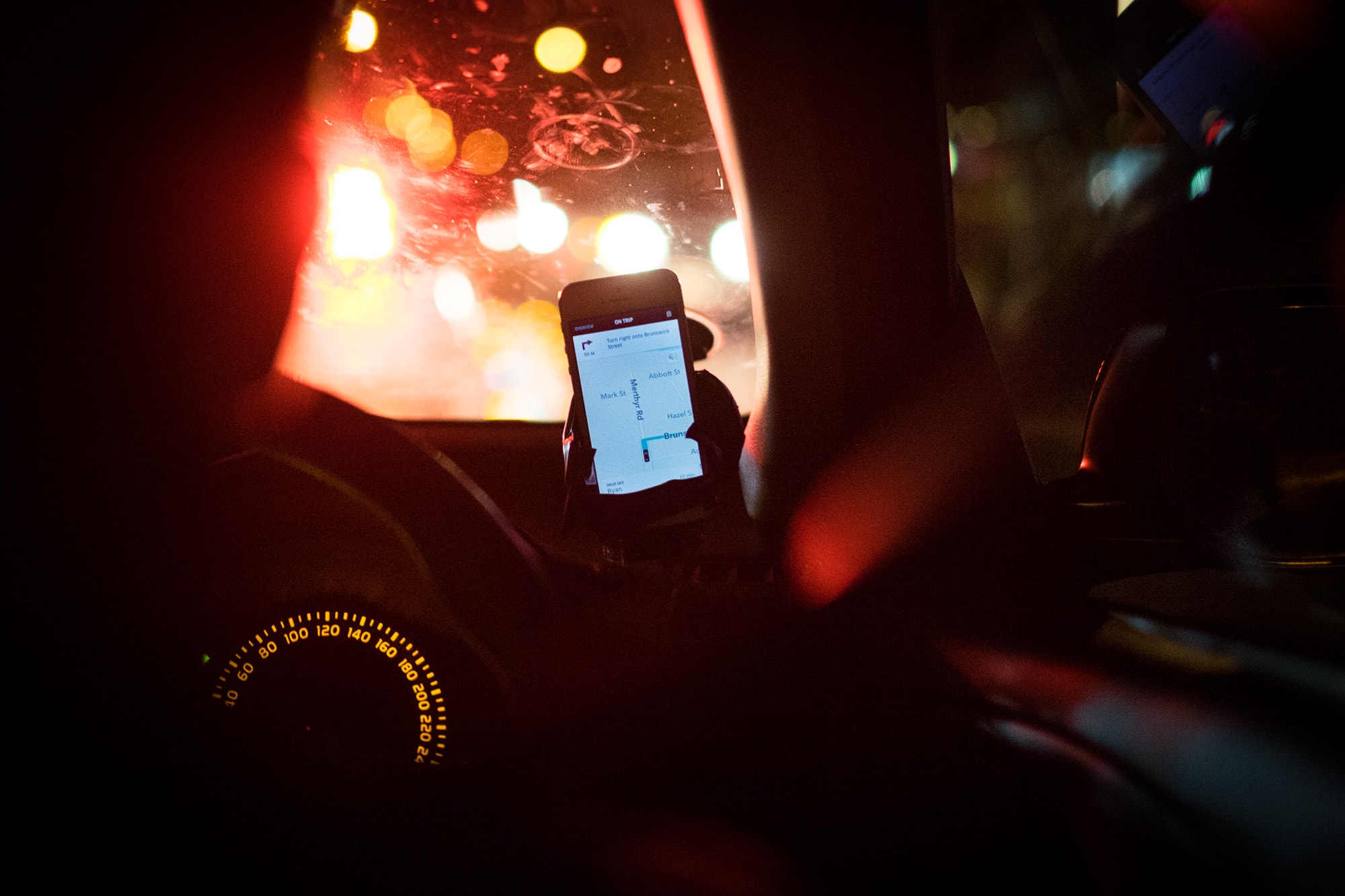French President Emmanuel Macron justified his past dealings with Uber Tuesday by “congratulating [himself]” for having fulfilled his mission as the then-minister of the economy to “create jobs.”
As he said, he would “do it again tomorrow and after tomorrow.”
On a visit to the Isère region in south-eastern France where a new semiconductor factory is to be built, Macron was asked by journalists about his response to the recent leak of over 124,000 documents, now known as the Uber files, which revealed his active and close cooperation with senior lobbyists from the US company while he was minister of the economy between 2014 and 2016.
https://www.instagram.com/p/Cf2DX6woTMu/
The Uber files contain evidence that he helped facilitate Uber’s controversial launch in France, where the Californian company’s aggressive expansion tactics and contempt for local transport regulations, workers’ rights frameworks, as well as established taxi markets, sparked a fierce backlash, with violent taxi drivers’ protests and assaults on Uber drivers becoming more frequent from mid-2015 on end.
The Uber files leak provided ammunition for the French parliament’s opposition parties, with several political figures from both the left and the far right, as well as the leftwing CGT trade union, calling for a parliamentary inquiry into reports that Macron had undeclared meetings with Uber and that he had told the company’s co-founder Travis Kalanick he had arranged a secret “deal” with the cabinet, notably the then-Prime Minister Bernard Cazeneuve.
Yet, to say that Cazeneuve initially disliked Uber is an understatement. Leaked notes from the PM’s own encounter with Uber executives in June 2015 read like a series of fatal blows.
“There can be no discussion with interlocutors who have no respect for the French law,” Cazeneuve said according to the notes, adding that a ban must be imposed upon Uber Pop “immediately.”
A text message reportedly sent a few days later by Macron to Kalanick, then CEO of Uber, indicates the French cabinet’s sharp U-turn:
“We had a meeting yesterday with the prime minister. Cazeneuve will keep the taxi(s) quiet and I will gather everybidy [sic] next week to prepare the reform and correct the law. Caz accepted the deal.”
On Tuesday, Macron shunned accusations that the meetings were hidden from the public, and constituted an ethically questionable lack of transparency, throwing accusations back at critics that they “create an atmosphere where meeting business heads, particularly when they are foreign, is a bad thing.”
“But I totally own what I did,” he said, loudly.
Without a jacket, his shirt sleeves rolled up, Macron appeared before the cameras with a confident, if not embattled outlook.
“I met with foreign business heads, what horror!” he said with irony, insisting these meetings were “always official” and involved members of his staff.
“I’m proud of it,” he continued. “If they have created jobs in France, I’m extremely proud of it, and you know what? I’ll do it again tomorrow and the day after tomorrow.”
Related articles: ‘Violence Guarantees Success’: Uber Files Reveal Tech Giant’s Aggressive Expansion Strategy | Meat, Monopolies, Mega Farms: How the US Food System Fuels Climate Crisis
Was it all worth it then?
Macron’s core justification for helping Uber’s expansion in the French market is that it formed an integral part of his job as minister of the economy to open up a market he said was too closed up and constrained, which further fueled unemployment rates:
“As minister of the economy, I fought in favour of innovation and to attract businesses [to France]… We created thousands of jobs.”
“You know what, here’s a scoop,” he said, “it’s very difficult to create jobs without businesses and entrepreneurs. So I will continue to meet businesses and entrepreneurs to convince them to invest in our country and I’ll do everything I can to open up sectors where activity is stuck, in order to create jobs. Because every young person who has had a job opportunity thanks to that, I’m pleased about.”
Drawing parallels between his past dealings with Uber and what led to Tuesday’s announcement of new investment and the promise of 1,500 jobs in Crolles, where a semiconductors factory is to be built, Macron downplayed those proceedings as routine work.
“We’re here in Crolles because, similarly, several months ago, and in a confidential way – because we have to preserve the secrets of companies in competitive contexts – I met with the head of GlobalFoundries, who is here today.”
Macron went on to say the crux of his effort to create employment opportunities was to combat economic inequalities faced by “young people” and “women and men victims of discrimination.”
Asked why he thought he was facing backlash over his Uber dealings from the left-wing opposition coalition NUPES, Macron answered: “Because they’ve lost their minds!”
He added that, unlike the left-wing parties, he was actively fighting for “social justice.”
“If we don’t fight for education, training and the creation of innovation – in other words, economic opportunities – we’ll still have unemployment. And our unemployment, even if it has dropped in the past five years, is still too high.”
So, has the expansion of Uber in France helped the French economy?
On Tuesday, Macron described the French taxi industry as functioning like a “system of annuities” (Kalanick, Uber’s ex-CEO, prefered the term “cartel,” but to each his own), where only a few businesses reaped a majority of the profits.
He also pointed to their alleged withholding of taxi driving licenses which, between 2012 and 2014, indeed cost a staggering €260,000.
But the President did not account for the taxi drivers themselves, who, and it is no overstatement to say, were pushed to desperation by Uber’s bulldozing of cab-hailing services whose actors are not required to follow the same constraints as them – like the acquisition of an expensive license.

Macron also failed to address the growing concerns over the consequences of an “uberization” of the economy, whereby the development of digital platforms which, like Uber, connect customers with service providers, results in the generalisation of an unregulated gig economy posing a risk to workers’ status and rights.
Defenders of this form of economic development, like Macron, point to its innovative character that pushes long-established agents (cabs, hotels, restaurants, banks, etc.) to innovate, (supposedly) resulting in better and cheaper services and products for customers.
They also suggest digital platforms increase the size of markets by making it very easy to access services via mobile phones and computers, therefore attracting new customers.
However, the expansion of an uberized economy also creates new forms of economic inequality and precariousness. Since long-established actors are not subject to the same rules as the new, uberized businesses, the development of the gig economy skews competition.
In addition, people who join those businesses and offer services via their digital platforms do not benefit from the rights and protections enshrined in a salaried status, as they are legally considered to be self-employed.
While companies like Uber boast their economic model fosters independence and flexibility, the reality is that this kind of work has no fixed minimal wage attached, compelling workers to abide by the unstable nature of the job.
In some cases, the uberized workforce is not even defined by any clear legal status, is deprived of welfare rights, and can be compelled to work more hours than is legal because they operate outside established labour laws.
On Tuesday, Macron insisted that he was “not naïve” in dealing with Uber and, though he helped their expansion, sought to impose regulations upon internet behemoths:
“Then, when I became president, we regulated the sector, unsparingly. We are the first country who regulated online platforms, and after that, we pushed it at the European level. So, I’m extremely proud.”
Yet, today in France, Uber drivers are still legally described as self-employed and do not benefit from the salaried status – which they increasingly protest against.

In March 2020, the French Court of Cassation, which has jurisdiction over all civil and criminal matters triable in the judicial system, ruled that the Uber drivers’ independent status was “fictitious,” calling for a “reclassification” of the relationship between a driver and the company as a contract of employment.
The ruling was issued in the case of an Uber driver who sued the company for closing his account, preventing him from receiving demands for rides. The Court found that because the driver cannot freely choose his itinerary, and because Uber is able to close the driver’s account if he rejects up to three demands for a ride, the Uber driver cannot be legally described as an independent worker.
Instead, the driver “takes part in organised cab-hailing services whose professional conditions are unilaterally defined by Uber,” the judge said.
While the court’s decision does represent a legal show of force against Uber in France, it has yet to result in concrete changes on the part of Uber, and in a consolidation of the laws framing the uberized workforce’s rights overall. According to a study by the International Labour Organization, on a global scale, members of this new kind of workforce earn on average €3,90 per hour, and six in 10 hope to find jobs outside the platforms.
Editor’s Note: The opinions expressed here by the authors are their own, not those of Impakter.com — In the Featured Photo: Emmanuel Macron speaking as France’s minister of the economy at a conference on digital technologies in December 2014. Featured Photo Credit: Wikimedia Commons.














